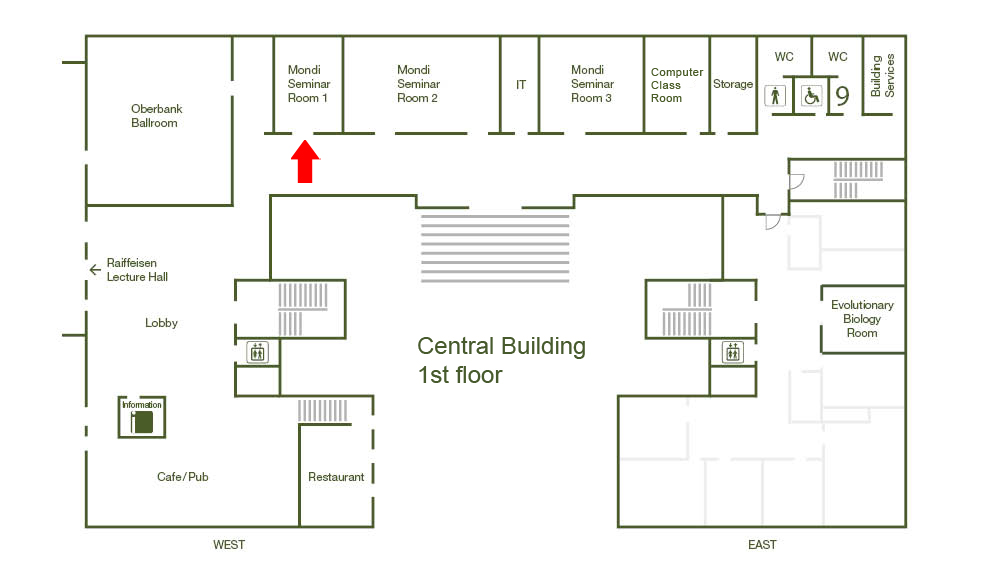Different behaviours of the N-particle branching random walk
Vienna Probability Seminar

The N-particle branching random walk is a discrete time branching particle system with selection. We have N particles located on the real line at all times. At every time step each particle is replaced by two offspring, and each offspring particle makes a jump of non-negative size from its parent's location, independently from the other jumps, according to a given jump distribution. Then only the N rightmost particles survive; the other particles are removed from the system to keep the population size constant. This process shows very different behaviours with different jump distributions in terms of speed and genealogy. The speed in the ‘light-tailed’ case (when the jump distribution has some exponential moments) was studied by Bérard and Gouéré, and the polynomial-tailed case was investigated in the work of Bérard and Maillard. As these two cases are significantly different from each other, we aimed to fill the gap with our result on the intermediate stretched exponential case. We describe the first order and give lower and upper bounds on the second order of the asymptotic speed as the number of particles N goes to infinity. If time allows I will also discuss our genealogy result in the polynomial case, which says that at a typical large time the genealogy of the population is given by a star-shaped coalescent. The talk is based on joint work with Sarah Penington and Matthew Roberts.